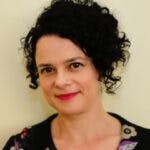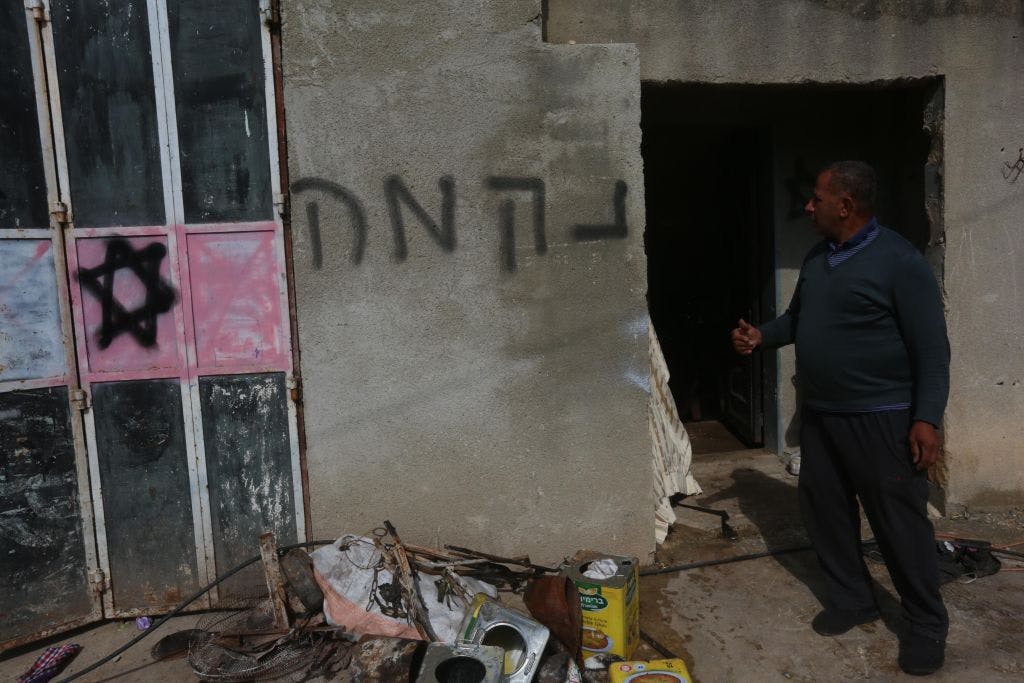Published: 28 November 2023
Last updated: 5 March 2024
The journalists who signed a letter rejecting “both-sideism” have swallowed propaganda not compassion, writes JULIE SZEGO.
At this stage, I might as well confess that being a journalist has given me a smug feeling of superiority over the years. Not a sense of superiority over everyone— please don’t misunderstand. Just over people in the other wordy professions: academics, PR consultants, bureaucrats, arts administrators, all of them. I watched these guys propagating weasel language and virtuous platitudes and thanked the gods I had landed in a trade forced to grapple with reality and report on it clearly. Without fear or favour, you know the drill.
And even in the awful new normal post-October 7, as people who call themselves journalists followed in the footsteps of professors at the most prestigious universities, of committee members at Australia’s academic union and of editors at literary journals and signed open letters that either disappeared the slain and tortured Israeli victims or implied they had it coming, I somehow thought the profession's leaders would stand their ground.
This was blind faith, I admit. When, in 2021, hundreds of journalists signed a petition calling for the media to “Do Better on Palestine” and abandon “both sidesism” reporting — which for the signatories evidently meant pretending Hamas and its rockets never happened, and Israel was therefore on a random bombing spree of Gaza — the journalists’ union, the MEAA, gave its de facto endorsement to the document.
Still, I thought, the barbarity of October 7, and its perfect victims, if I can put it that way — socialists, warriors for peace, young leftie ravers — surely meant that this time it’s different. That the custodians of journalistic values would see the conflict in all its painful contradictions and extoll nothing more than the profession’s sacred duty to scrutinise and bear witness.
Then, in an ominous sign, the union put out its own statement calling for a Hamas-Israel ceasefire. And last week things finally degenerated after Patrick Abboud, the host at the Walkley awards, the academy awards of journalism, exhorted the audience to agitate for a ceasefire — a call that damages the profession as much as it leaves Israel’s war cabinet unmoved.
And then, in what for me is akin to the collapse of civilisation itself, the union’s national committee signed yet another open letter calling on the media to abandon “both sidesism” reporting on the war. I’ll get to the content of the letter in a minute. Suffice to say, it’s pure propaganda masquerading as “clear-eyed” and compassionate even-handedness.
The signatories include journalists, some of them senior, at The Age and The Sydney Morning Herald. Nine’s editorial management has banned them from reporting on the Israel-Palestinian conflict — a commendable decision, if somewhat belated given several prominent journalists at the mastheads signed the 2021 petition and have since reported on the subject. Still, it’s an encouraging sign that the union house committees at each paper refused to endorse the letter.
In my quarter-of-a-century long association with The Age I can say the paper’s superego is careful, if conflicted, on Israel: editors care very much about getting the coverage right even when there’s acute differences of opinion on what that might look like. As I’ve recounted in recent op-eds, as a leader writer at the paper I was sometimes asked if I was sure I could write objectively about the conflict. I bristled at the passive-aggressive discrimination, but at least such encounters demonstrated that objectivity was a supreme value at the organisation — overall, I think it still is.
The letter was endorsed by the union house committee at The Guardian. A few weeks ago I found myself idly contemplating how it might feel to be a Jewish journalist at the left-wing paper in the UK, and then I read an anonymous tell-all account of just that, of a reporter grieving her dead brethren while her colleagues looked through her, all the while merrily tweeting about “settler-colonial” Israel and joking about American readers accusing the paper of antisemitism. The answer to how it would feel is: annihilating.
But the letter’s most egregious signatory, apart from the MEAA’s national committee, is the union house committee at the ABC, a very serious matter given the public broadcaster’s legislated obligation to uphold the highest journalistic standards. In response, the ABC warned staff that signing the letter may call into question their impartiality as reporters— no kidding! The response is not equal to the scale of the problem when we know that reporters at a recent meeting were clamouring for the right to state as fact allegations of “war crimes,” “apartheid” and “genocide” in reporting on the Israel-Palestinian conflict. And when, at the same meeting, reporters mentioned that some in the Muslim community were upset at the ABC’s reporting, an executive agreed to think about what might be done.
“They should have said feelings have nothing to do with reporting,” wrote former staff elected ABC board director, Ramona Koval, in a searing piece about the confrontation in The Australian. “What are they running, a kindergarten?”
The open letter certainly bears traces of magical thinking. It refers to Israel’s “apparent targeting” of journalists — could anything be more villainous? Israel’s pronouncements should be regarded with the same “professional scepticism” as those of jihadist Hamas. Israel is guilty of original and enduring sin — the Palestinians and Hamas apparently have none — which means reporters should never imply the conflict started on October 7, although it’s not clear what we’re meant to think actually happened on October 7 because according to Hamas’s head of international relations, Basem Naim — who we must now deem as credible as any Israel spokesperson — no babies were burned that day or women raped and the massacre of young people at the rave was mostly the result of Israel's jets indiscriminately bombing the border.
And on it goes. There’s an especially distasteful call for transparency about journalists who have been on “all-expenses paid trips” to Israel organised by pro-Israeli government groups. Distasteful because it’s protocol for journalists to disclose they were on a “junket,” as we say in the trade, when reporting what they saw on the trip. The letter, on the other hand, seems to imply that once a reporter goes on a paid trip they should be seen in perpetuity as “bought” by Zionists. No equivalent concern is expressed about journalists who’ve been on sponsored trips to Palestine. But you know, the hotels aren’t as good there, the wine possibly non-existent, and these days you can get a decent drop of kosher plonk. Jews and their dirty money — right?
A former colleague today asked me: why are these activist journalists so roused to activism in this context and in no other? Not the actions of the Assad regime in Syria, the ethnocide in Xinjiang or .. you know the list. I’m too weary to offer a comprehensive answer but it seems they see Israel in one dimension, as perpetrator. Their focus is on conjuring an aggressor of biblical proportions not on the victims, be they Palestinian or Israel, who are mere rhetorical pawns, lingering somewhere off-camera.
I do, however, heartily endorse one sentiment in the letter. “Trust Australian journalists of Palestinian, Arab, Muslim and Jewish backgrounds to do their jobs,” it says. “Journalists with identities that intersect with a live issue bring insights and perspectives otherwise unattainable from a disconnected, privileged vantage point.”
I trust I’m a case in point.
Photo: A woman places photos of Palestinian photojournalist Roshdi Sarraj during a vigil for journalists killed in Gaza, outside the ABC's offices in Melbourne on October 31 (AAP Image/Joel Carrett)




